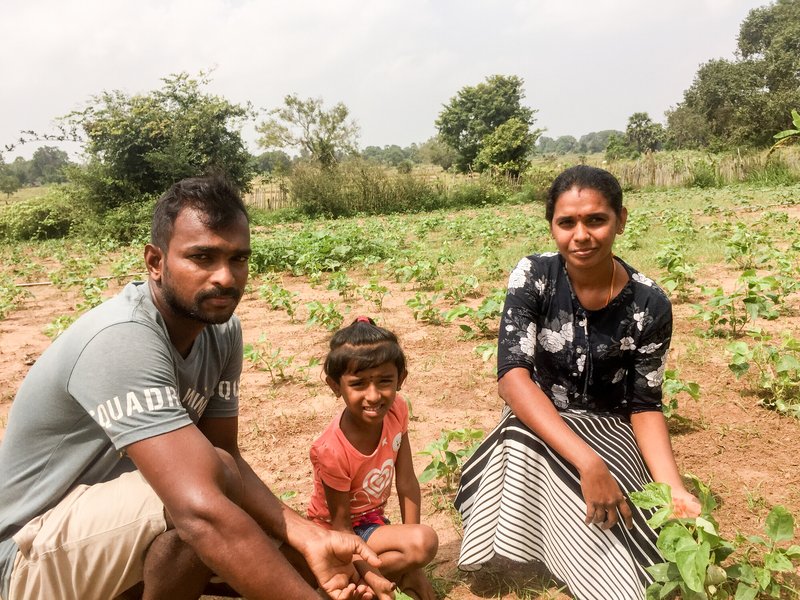Climate change ‘a matter of life or death’
Climate change is a matter of life or death for people living in vulnerable countries, yet as COP27 approaches, the Prime Minister is failing to prioritise justice for those who currently experience the most devastating effects of the climate crisis.
Today, we share in the disappointment of many that Rishi Sunak has failed to commit to attending the international climate conference, which starts on 6 November.
In recent months, The Leprosy Mission has provided emergency food packages for people left starving by the famine in the Horn of Africa. We have also helped people rebuild their lives in Northeastern Bangladesh after the worst flooding in a century.
Chief Executive Peter Waddup said: “Both these disasters causing death and untold suffering were exacerbated by climate change.
"This summer’s record-breaking temperatures in the UK brought home to us the reality of climate change. But in the communities in which we work in Asia and Africa it is literally a matter of life or death.
“Just as we saw with the global pandemic, climate change is something that affects everyone. But, as ever, we in the developed world are better protected from its very real and devastating consequences.
“It is a cruel truth that communities affected by Neglected Tropical Diseases, which include leprosy, are among the worst affected by extreme weather events.
"We need to protect our shared home and help people living in these communities to withstand extreme weather patterns. It is an indisputable fact that the poorer people are, the harder it is to recover from failed harvests, destroyed homes and health crises.
“I am disappointed that Rishi Sunak will not be attending COP27 in Sharm El Sheikh. Mr Sunak has already cut the UK Aid budget from 0.7 per cent to 0.5 per cent of national income during his time as Chancellor. Not attending COP27 will undoubtedly reduce the UK's influence as a force for good on the world stage.
"Some wonderful yet hugely ambitious targets were agreed at COP26 with a global consensus of limiting temperature rises to 1.5C. The UK needs to be at the forefront of COP27 to ensure that these targets are met. We in the UK have a duty of care to help people in developing countries to adapt to the impact of climate change. These are the people hit first and hardest, making poverty worse."
In recent years, The Leprosy Mission has helped hundreds of thousands of people to withstand the effects of climate change.
With the help of UK Aid, more than 4,000 farmers living hand to mouth in northern Mozambique have been trained in sustainable farming methods. This has helped them adapt to more frequent droughts and reduced rainfall.
In Sri Lanka in 2021, 24,429 people were able to strengthen their resilience to climate change by growing a wider variety of food. Families affected by leprosy were given native trees, seeds and plants, and agricultural training. A total of 130 wells were dug for families affected by leprosy.

Mum of one Rakini, 28, pictured above with her family, was treated for leprosy in 2016. She experienced leprosy reaction, the body's immune response to the dead leprosy bacteria. She developed nodules all over her body which lasted for months. Rakini’s neighbours were so afraid of her that she couldn’t leave her home.
Rakini and her husband farm vegetables and ground nuts. They have been given a well by The Leprosy Mission and training in sustainable farming techniques.
The couple farm 1.5 acres of land and have been significantly affected by climate change. Their land was flooded in January and a heatwave and further flooding in 2021 caused them to lose 30,000 rupees worth of harvest. Rakini has been helped to change her planting schedule and she is now growing okra which can better withstand flooding.
Rakini said: "I would like to use my farm as a model to help others in the area feed themselves and their families."